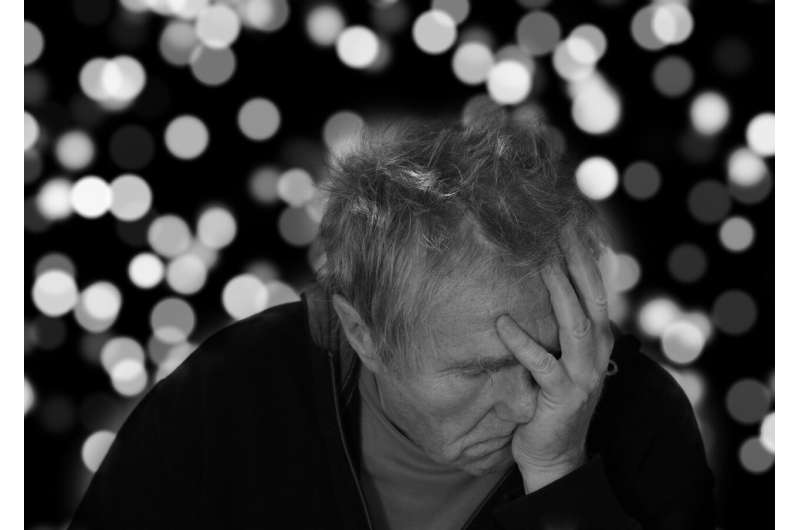The Impact of Social Media on Triggering Eating Disorders Among Youth

Social media significantly influences young people's mental health, often triggering and exacerbating eating disorders through harmful content and unrealistic body standards. Experts emphasize the need for increased awareness and regulation to protect vulnerable youth.
Social media platforms play a significant role in influencing the mental health of young people, particularly concerning body image and eating behaviors. Experts warn that social media can contribute to the development and exacerbation of eating disorders by glamorizing thinness and circulating harmful diet and nutrition advice that is often fake or dangerous. Young women and girls are especially vulnerable to disorders like anorexia, bulimia, and binge eating, although incidence rates in men are on the rise.
Research indicates that globally, the percentage of individuals who have experienced an eating disorder increased from 3.5% in 2000 to 7.8% in 2018, a period coinciding with the rise of social media usage. For healthcare professionals, misinformation propagated by influencers on platforms such as TikTok and Instagram poses a considerable challenge in treating affected teens.
According to Carole Copti, a French dietitian and nutritionist, social media is a trigger and obstacle in the recovery process. Nathalie Godart, a psychiatrist specializing in youth, explains that although social media is not the root cause, it acts as a "straw that may break the camel's back" by promoting idealized images, strict diets, and obsessive exercise, which weaken already vulnerable individuals.
One notable issue is the #skinnytok trend on TikTok, featuring dangerous advice encouraging drastic food restriction. This normalization of disordered eating behaviors influences young users deeply. Charlyne Buigues, a nurse specializing in eating disorders, highlights how videos portraying thinness, laxative use, or vomiting as weight-loss methods increase risks and perpetuate unhealthy norms.
Eating disorders can lead to severe health complications, including heart problems, infertility, and heightened suicide risk. Anorexia, in particular, has the highest mortality rate among psychiatric diseases. These disorders are the second leading cause of premature death among young French people.
Social media fosters a "vicious cycle" where individuals with eating disorders gain followers and validation by showcasing their thinness, reinforcing their behaviors and delays recovery. This cycle is often intensified when content creators monetize their posts, as illustrated by a case of a young woman openly recording herself vomiting for money.
Recovery from eating disorders becomes more complicated due to the mistrust and beliefs in misleading online advice. Young patients often believe in false promises of quick fixes, making treatment challenging. Experts warn about pseudo-coaches spreading illegal or absurd dietary advice, which complicates health messaging and intervention efforts.
Despite efforts to report harmful content, platforms rarely suspend problematic accounts, making it difficult to curb the spread of dangerous information. Some mental health professionals recommend that affected youth delete social media accounts entirely to protect themselves.
In conclusion, social media acts as both a trigger and a perpetuator of eating disorders in young people. Addressing this complex issue requires awareness, education, and stricter regulation of harmful online content to safeguard vulnerable populations.
Stay Updated with Mia's Feed
Get the latest health & wellness insights delivered straight to your inbox.
Related Articles
How Mindfulness Supports Long-Term Health Goals Without Burning Calories
Discover how mindfulness meditation can support your health goals by boosting motivation, self-awareness, and resilience, without focusing solely on calorie burning. Learn practical ways to incorporate mindfulness into your daily routine for lasting wellness benefits.
Shifting Happiness Trends Highlight Rising Youth Misery in Recent Research
Recent global research reveals a concerning rise in mental health struggles among young people, reversing traditional happiness patterns and highlighting the urgent need for targeted interventions. Read more about these crucial trends.
Understanding Cultural Perspectives on Living with Dementia
A new report explores how societal narratives influence the experiences of those living with dementia and emphasizes the importance of inclusive, respectful perspectives to improve care and societal support.
Neuroscience-Informed Well-Being App Launches to Enhance Mental Resilience
Discover ReNeuWell, a neuroscience-backed app designed to boost mental well-being and resilience through personalized activities like mindfulness, meditation, and goal-setting, currently in clinical trials in Australia.



